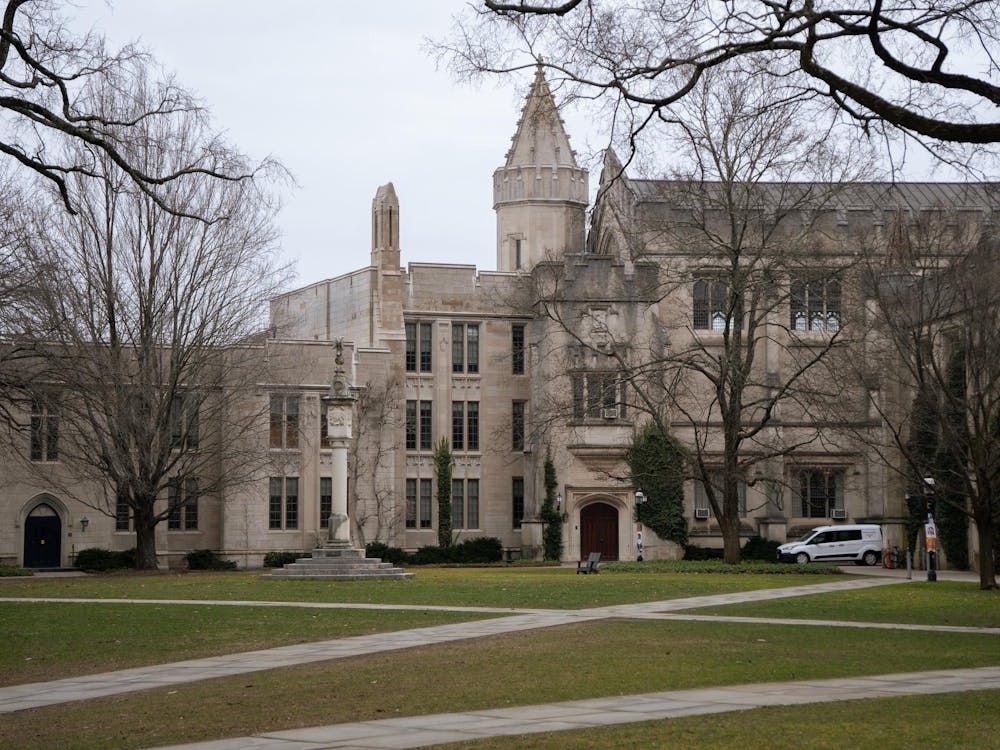Former President of the United Nations General Assembly Vuk Jeremic gave a lecture Thursday in which he argued that regional and national governments are facing a growing danger in continuing to misalign short-term priorities with long-term needs.
Sustainable development is an essential component to moving forward and preserving humanity, he said. He explained that sustainable development should allow for economic, social and environmental issues to be addressed fairly by governments without downplaying regional differences.
Jeremic noted that despite a growing number of honorable successes by the global community, the United Nations have been unable to fully pursue the Millenium Development Goals it set in 2000 because its member states have failed to resolve social problems such as women and minority rights, income disparities and climate change. The Millennium Development Goals, which have the year 2015 as their target goal, include eradicating poverty and hunger, ensuring environmental sustainability and promoting gender equality.
“Inequality within most developed and developing countries has actually increased,” Jeremic said. “The human race is the primary cause of the rapid physical changes taking place on Earth,” he added.
He gave climate change and carbon emissions as the primary examples of the human race bringing about its own demise. Today, humans burn more coal, oil and gas, which Jeremic called the “tried and true conventional growth strategy.” However, the bigger problem is when states and nations neglect to address the adverse consequences associated with this growth, he added.
“We are not only the source, but we’re unwilling to evoke measures to prevent the worst of it from consuming us,” he said. “Unless we start acting, we are in danger.”
Jeremic discussed President John F. Kennedy’s Commencement Address in 1963 and the increasing concern for nuclear exchange at that time as an analogy to today’s dilemmas regarding sustainable energy. He maintained that the problems the world faces today are no less threatening to our chances of survival.
Redirecting of scientific innovation and global cooperation is the best solution to present-day problems, Jeremic said. He encouraged innovation in targeted directions, promoting paradigm-changing products and services to address sustainability.
“Creating a sustainable energy system of a global nature is one of our greatest priorities,” he said. “Technological invention is inevitable, but I believe it should be directed toward human goals, rather than market interests.”
Jeremic concluded his talk with a discussion of the political dimension to achieving sustainable development. He said that collaboration from heads of state and governments is necessary and added that issues of climate change and sustainability have constantly been neglected by global leaders.
“Post-2015 agenda can only succeed if they have global agreement and support from all countries,” he said, referring to the United Nations. Cooperation from research institutions, think tanks and every other branch of society are valuable contributions to this post-2015 development agenda, he added.
When asked about the prospects of geoengineering as a viable route to acquiring sustainability, Jeremic said that the UN’s primary goals are fundamental in nature, defining ‘fundamental’ goals as figuring out how to convince every nation that climate change is actually occurring rather than jumping to scientific solutions. He added that while nongovernmental organizations play a viable role in making people aware of climate change, the UN should focus on the governments that have the ability to incentivize these interest groups.

Jeremic was President of the United Nations General Assembly during its 67th session and presided over historic decisions such as the granting of non-member observer status to Palestine and the adoption of the Arms Trade Treaty. He served as the Serbian Minister of Foreign Affairs from 2007 to 2012 and has received international acclaim for his diplomatic successes.
Jeremic spoke on Thursday at 4:30 p.m. in the Whig Senate Chamber as part of the Speaker’s Series sponsored by the American Whig Cliosophic Society. His lecture was titled “Cooperation and Sustainable Development in the 21st Century.”








